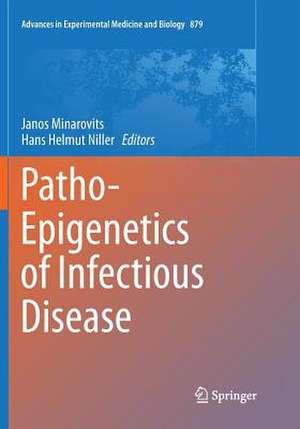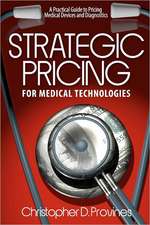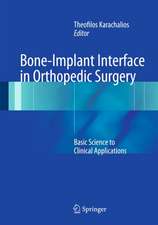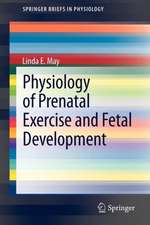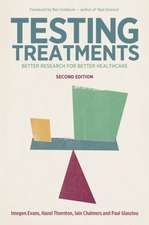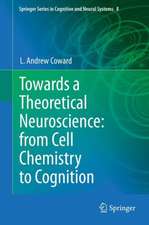Patho-Epigenetics of Infectious Disease: Advances in Experimental Medicine and Biology, cartea 879
Editat de Janos Minarovits, Hans Helmut Nilleren Limba Engleză Paperback – 27 mar 2019
| Toate formatele și edițiile | Preț | Express |
|---|---|---|
| Paperback (1) | 635.47 lei 6-8 săpt. | |
| Springer International Publishing – 27 mar 2019 | 635.47 lei 6-8 săpt. | |
| Hardback (1) | 643.00 lei 6-8 săpt. | |
| Springer International Publishing – 18 dec 2015 | 643.00 lei 6-8 săpt. |
Din seria Advances in Experimental Medicine and Biology
- 9%
 Preț: 719.60 lei
Preț: 719.60 lei - 20%
 Preț: 691.93 lei
Preț: 691.93 lei - 5%
 Preț: 717.00 lei
Preț: 717.00 lei - 5%
 Preț: 716.28 lei
Preț: 716.28 lei - 5%
 Preț: 717.20 lei
Preț: 717.20 lei - 15%
 Preț: 640.24 lei
Preț: 640.24 lei - 5%
 Preț: 1113.83 lei
Preț: 1113.83 lei - 5%
 Preț: 715.71 lei
Preț: 715.71 lei - 5%
 Preț: 820.43 lei
Preț: 820.43 lei - 15%
 Preț: 641.38 lei
Preț: 641.38 lei - 5%
 Preț: 716.28 lei
Preț: 716.28 lei - 5%
 Preț: 523.99 lei
Preț: 523.99 lei - 5%
 Preț: 1031.00 lei
Preț: 1031.00 lei - 5%
 Preț: 717.00 lei
Preț: 717.00 lei - 5%
 Preț: 715.35 lei
Preț: 715.35 lei - 20%
 Preț: 1161.71 lei
Preț: 1161.71 lei - 5%
 Preț: 1170.51 lei
Preț: 1170.51 lei - 18%
 Preț: 1119.87 lei
Preț: 1119.87 lei - 5%
 Preț: 1288.48 lei
Preț: 1288.48 lei - 5%
 Preț: 1164.67 lei
Preț: 1164.67 lei - 5%
 Preț: 1101.73 lei
Preț: 1101.73 lei - 18%
 Preț: 1123.67 lei
Preț: 1123.67 lei - 5%
 Preț: 1435.64 lei
Preț: 1435.64 lei - 20%
 Preț: 1044.10 lei
Preț: 1044.10 lei - 18%
 Preț: 946.39 lei
Preț: 946.39 lei - 5%
 Preț: 292.57 lei
Preț: 292.57 lei - 18%
 Preț: 957.62 lei
Preț: 957.62 lei - 18%
 Preț: 1235.76 lei
Preț: 1235.76 lei - 5%
 Preț: 1231.55 lei
Preț: 1231.55 lei - 5%
 Preț: 1292.30 lei
Preț: 1292.30 lei - 5%
 Preț: 1102.10 lei
Preț: 1102.10 lei - 18%
 Preț: 1132.81 lei
Preț: 1132.81 lei - 5%
 Preț: 1165.19 lei
Preț: 1165.19 lei - 5%
 Preț: 1418.48 lei
Preț: 1418.48 lei - 5%
 Preț: 1305.63 lei
Preț: 1305.63 lei - 18%
 Preț: 1417.72 lei
Preț: 1417.72 lei - 18%
 Preț: 1412.99 lei
Preț: 1412.99 lei - 24%
 Preț: 806.16 lei
Preț: 806.16 lei - 18%
 Preț: 1243.29 lei
Preț: 1243.29 lei - 5%
 Preț: 1429.44 lei
Preț: 1429.44 lei - 5%
 Preț: 1618.70 lei
Preț: 1618.70 lei - 5%
 Preț: 1305.12 lei
Preț: 1305.12 lei - 18%
 Preț: 1124.92 lei
Preț: 1124.92 lei - 5%
 Preț: 1097.54 lei
Preț: 1097.54 lei - 15%
 Preț: 649.87 lei
Preț: 649.87 lei - 5%
 Preț: 1097.54 lei
Preț: 1097.54 lei - 18%
 Preț: 945.79 lei
Preț: 945.79 lei - 5%
 Preț: 1123.16 lei
Preț: 1123.16 lei
Preț: 635.47 lei
Preț vechi: 747.61 lei
-15% Nou
Puncte Express: 953
Preț estimativ în valută:
121.61€ • 126.50$ • 100.40£
121.61€ • 126.50$ • 100.40£
Carte tipărită la comandă
Livrare economică 14-28 aprilie
Preluare comenzi: 021 569.72.76
Specificații
ISBN-13: 9783319796697
ISBN-10: 3319796690
Pagini: 137
Ilustrații: XV, 137 p. 8 illus. in color.
Dimensiuni: 178 x 254 mm
Greutate: 0.28 kg
Ediția:Softcover reprint of the original 1st ed. 2016
Editura: Springer International Publishing
Colecția Springer
Seria Advances in Experimental Medicine and Biology
Locul publicării:Cham, Switzerland
ISBN-10: 3319796690
Pagini: 137
Ilustrații: XV, 137 p. 8 illus. in color.
Dimensiuni: 178 x 254 mm
Greutate: 0.28 kg
Ediția:Softcover reprint of the original 1st ed. 2016
Editura: Springer International Publishing
Colecția Springer
Seria Advances in Experimental Medicine and Biology
Locul publicării:Cham, Switzerland
Cuprins
Preface, Walter Doerfler.- Foreword, Janos Minarovits and Hans Helmut Niller.- Epigenetic Regulation, Janos Minarovits, Ferenc Banati, Kalman Szenthe, and Hans Helmut Niller.- HIV-Induced Epigenetic Alterations in Host Cells, Enass Abdel-Hameed, Hong Ji and Mohamed Tarek Shata.- Epigenetic Alterations in Epstein-Barr Virus-Associated Diseases,
Hans Helmut Niller, Ferenc Banati, Daniel Salamon, and Janos Minarovits.- Epigenetic Dysregulation in Virus-Associated Neoplasm, Janos Minarovits, Anett Demcsák, Ferenc Banati, and Hans Helmut Niller.- Epigenetic Alterations Induced by Bacterial Lipopolysacharides, Lorenzo Chiariotti, Lorena Coretti, Raffaela Pero, and Francesca Lembo.- Patho-Epigenetics of Infectious Diseases Caused by Intracellular Bacteria, Hans Helmut Niller and Janos Minarovits.- Abbreviations.
Hans Helmut Niller, Ferenc Banati, Daniel Salamon, and Janos Minarovits.- Epigenetic Dysregulation in Virus-Associated Neoplasm, Janos Minarovits, Anett Demcsák, Ferenc Banati, and Hans Helmut Niller.- Epigenetic Alterations Induced by Bacterial Lipopolysacharides, Lorenzo Chiariotti, Lorena Coretti, Raffaela Pero, and Francesca Lembo.- Patho-Epigenetics of Infectious Diseases Caused by Intracellular Bacteria, Hans Helmut Niller and Janos Minarovits.- Abbreviations.
Textul de pe ultima copertă
Epigenetic modification of cellular genomes is a fascinating means of regulating tissue- and cell type-specific gene expression in all developmental stages of the life of an organism. Carefully orchestrated processes, such as DNA methylation and a plenitude of specific histone modifications secure the faithful transmission of gene expression patterns to progeny cells. Upon chronic infection, the epigenetic cellular balance can become disrupted and, in the long run, through the epigenetic reprogramming of host cell genomes, contribute to the malignant conversion of formerly healthy cells, in many cases preceded by the establishment of an epigenetic field of cancerization. The present volume undertakes to highlight the interactions of infectious pathogens and their effector molecules with the epigenetic regulatory machinery of the cell. Clearly, the recent take-off of epigenetics research did not leave Research on Infectious Diseases and Infection-Associated Cancer untouched. This resulted in a great many of clinically relevant data on understanding the molecular mechanisms of chronic infectious disease. Infectious pathogen- and disease-specific epigenetic alterations are already being used for the early detection of malignant disease and for the prediction of chemotherapy resistance or response to treatment.
Caracteristici
First book dedicated to Epigenetics of Infectious Disease Deals with two major classes of infectious pathogens, i.e. bacteria and viruses Comprehensive review of epigenetic reprogramming by bacteria and viruses
